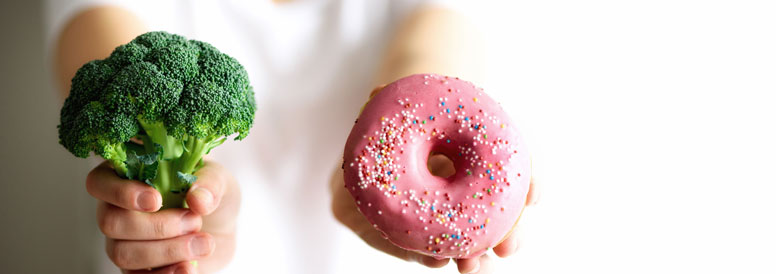Debate over food quality vs. quantity
The classic approach to weight management has emphasized the need to balance the number of calories consumed with the number of calories burned. Even as popular diets become more nuanced—to restrict carbohydrates or other foods—most agree that nobody will lose weight if they eat too much food.
Still, many nutritionists and holistic practitioners emphasize the importance of food quality over quantity. They argue, for example, that eating 100-calories of organic quinoa is superior to eating 100-calories of cookies. The argument seems reasonable, but has it ever been tested?
A study supported by the National Institutes of Health (NIH) and published in the summer of 2019 aimed to settle the debate over food quality vs. quantity. Researchers admitted 20 healthy adults to the NIH Clinical Center to stay for four weeks. Participants were randomized to receive an ultra-processed diet or unprocessed diet for two weeks and then the alternate diet for the second two weeks.
The ultra-processed diet included foods that many people consider to be healthy, such as Honey Nut Cheerios, Yoplait yogurt, and precooked frozen eggs. The unprocessed diet included foods such as oatmeal, roast beef, Greek yogurt, fresh eggs, and barley. The ultra-processed and unprocessed meals were matched to provide equivalent quantities of calories, macronutrients, sugar, sodium, and fiber. Participants were instructed to consume as much or as little as they desired.
The NIH researchers found that people who were presented with ultra-processed foods tended to consume more calories and carbohydrates but not protein. Weight changes correlated with energy intake, such that those consuming the ultra–processed diet gained weight (~0.9 pounds over two weeks), and those consuming the unprocessed diet lost weight (~0.9 pounds over two weeks).
The results of this study suggest that when higher quality and unprocessed foods are available, people naturally tend to eat less.

